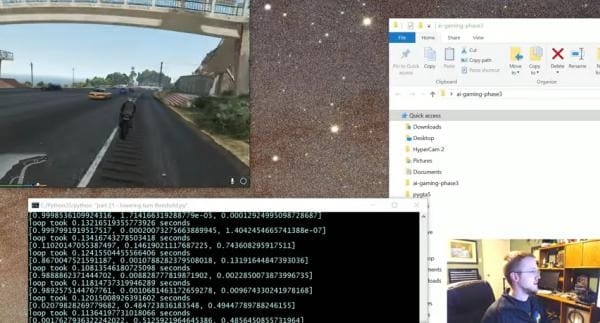5 Free Resources for Getting Started with Self-driving Vehicles
This is a short list of 5 resources to help newcomers find their bearings when learning about self-driving vehicles, all of which are free. This should be sufficient to learn the basics, and to learn where to look next for further instruction.

From Computer Vision for Autonomous Vehicles: Problems, Datasets and State-of-the-Art, below.
Interested in self-driving vehicles? Don't know where or how to start learning?
Formal education in this topic is sparse, and so those interested in learning must do so with a hacker mentality. I have collected a short list of 5 resources to help newcomers find their bearings, all of which are free. Hopefully it is useful to some.
1. The Machine Learning Algorithms Used in Self-Driving Cars
This KDnuggets post will get your feet wet in the world of autonomous vehicle algorithms, providing an introductory insight into what to expect if you travel down this road, pun intended.
Machine Learning applications include evaluation of driver condition or driving scenario classification through data fusion from different external and internal sensors. We examine different algorithms used for self-driving cars.
2. Computer Vision for Autonomous Vehicles: Problems, Datasets and State-of-the-Art
A summary of the current state of CV for autonomous vehicles, by Joel Janai, Fatma Güney, Aseem Behl, and Andreas Geiger. From the abstract:
Recent years have witnessed amazing progress in AI related fields such as computer vision, machine learning and autonomous vehicles. As with any rapidly growing field, however, it becomes increasingly difficult to stay up-to-date or enter the field as a beginner. While several topic specific survey papers have been written, to date no general survey on problems, datasets and methods in computer vision for autonomous vehicles exists. This paper attempts to narrow this gap by providing a state-of-the-art survey on this topic. Our survey includes both the historically most relevant literature as well as the current state-of-the-art on several specific topics, including recognition, reconstruction, motion estimation, tracking, scene understanding and end-to-end learning.
A lengthy, thorough overview, and probably the best starting place for anyone looking to get up to speed in the field quickly, and in one spot.
3. Deep Learning for Self-Driving Cars
This is the courseware site for MIT 6.S094.
This class is an introduction to the practice of deep learning through the applied theme of building a self-driving car. It is open to beginners and is designed for those who are new to machine learning, but it can also benefit advanced researchers in the field looking for a practical overview of deep learning methods and their application.
With lecture slides and videos, and guest talks, this is a great resource for anyone interested in learning the application of deep neural networks to self-driving cars.
4. Python plays Grand Theft Auto V
This is an ongoing series of videos by Harrison Kinsley (aka sentdex), described as follows:
The purpose of this project is to use Python to play Grand Theft Auto 5. There are many things to do in GTA V, but our first goal will be to create a self-driving car, well scooter in this case.

From Harrison Kinsley's Python plays Grand Theft Auto V video series.
The series is past 17 videos at this point, broken up into easily-digestible chunks. Check out the accompanying code here: Explorations of Using Python to play Grand Theft Auto 5. Also, Harrison has numerous other video tutorial series covering everything from Python basics to financial analysis using Python to practical machine learning and beyond, which may be of interest to readers as well.
5. Self-Driving Car Engineer Nanodegree
Self-driving cars represent one of the most significant advances in modern history. Their impact will go beyond technology, beyond transportation, beyond urban planning to change our daily lives in ways we have yet to imagine.
Students who enroll in this program will master technologies that are going to shape the future.
Udacity's marketing aside, this is probably the most thorough and concentrated formal training/education one can currently receive in the area of autonomous vehicles. I say probably because I don't have first hand experience, but I also do not see any other potential claimant to that crown a the moment. The courseware is free to access, while enrolling in the nanodegree credential will cost some money.
Here is a review of the first semester by a student, to help fill this void. You can find another student's course notes and code here if you want to get a sampling of what it is you will learn in such a collection of courses. Here are some additional self-driving car resources directly from Udacity.
Related:



